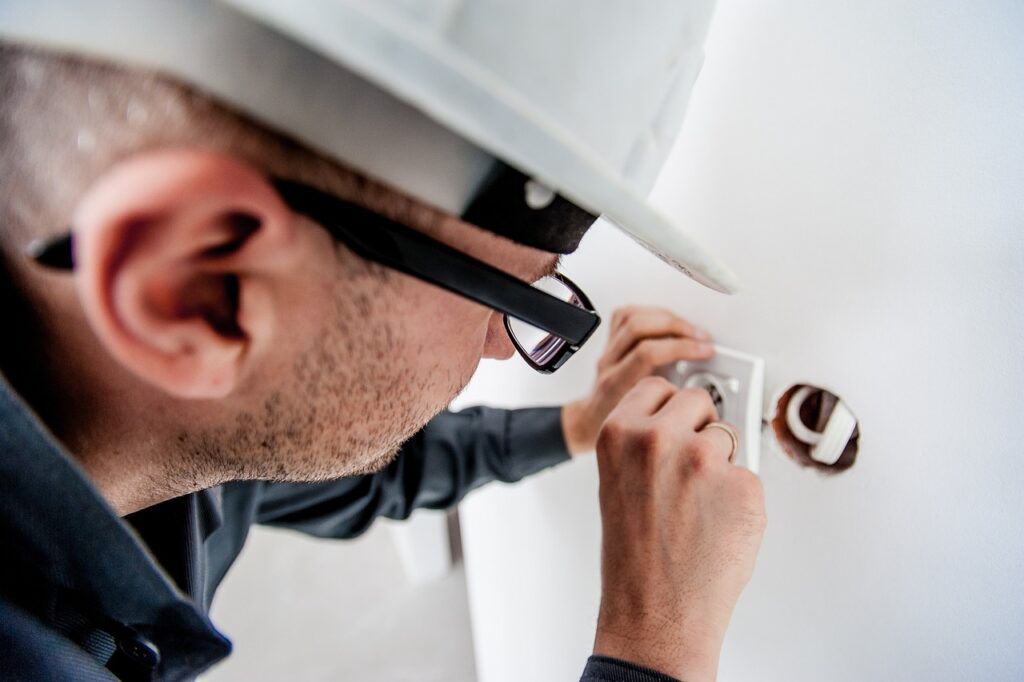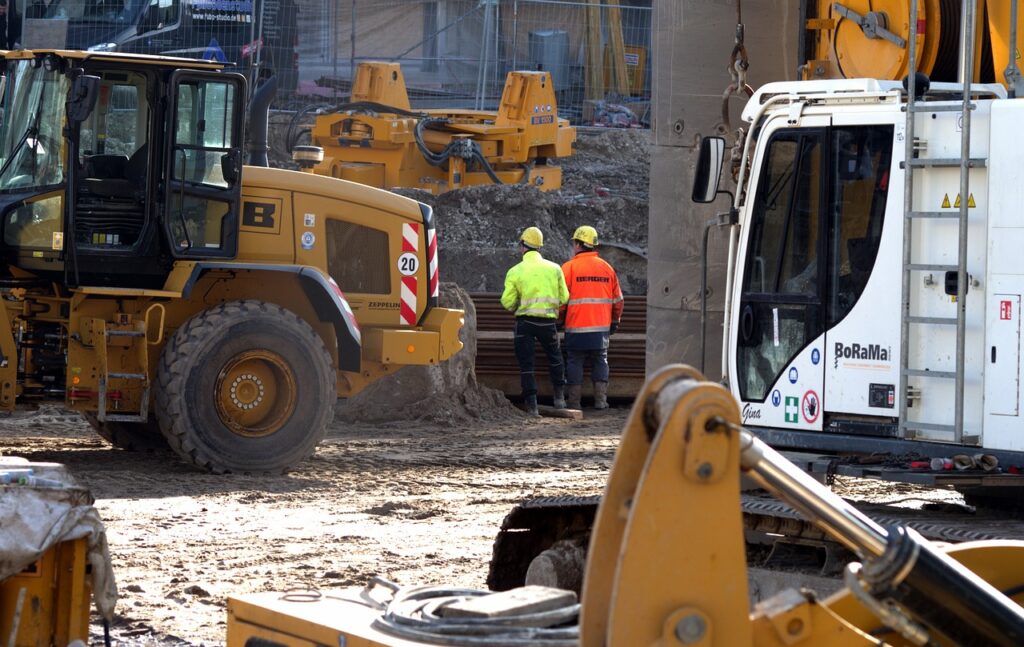
When starting a construction project, clients will be managing a lot of paperwork, scheduling, payments, and communication with many different departments. Balancing all this work takes a great deal of effort, so it would be a good strategy to hire a construction contractor to help carry the load.
A construction contractor or general contractor is someone who helps organize your construction project by balancing all the communication and scheduling. General contractors are often abbreviated to GC for easy recognition in documentation. They can play a pivotal role making sure your project proceeds on schedule and being built to your specifications.
General Contractor
A general contractor can be an organization or a person hired by a client to carry out work, required for the completion of a project. Their main responsibilities include overseeing construction of the project from start to finish, acting as a communication relay from property owner to all parties working on the building (suppliers, vendors, trades-people), and hiring subcontractors to complete specific parts of the project.
A good GC is licensed with the local authorities, and has sufficient insurance and liability coverage.
Another key responsibility for a GC is ensuring the safety of all workers involved on the construction site. Construction is a high-risk occupation with heavy machinery, toxic chemicals and dangerous materials often being used on projects. A GC is responsible for ensuring safety standards.
Subcontractors

A GC is often responsible for hiring subcontractors to work on a project. A Subcontractor (SC) are specialists who perform a specific task on a construction site. Subcontractors work for the GC and are paid for by the GC, who in turn is paid by the building owner.
A construction project can have multiple SCs on the job. Common SCs would include electricians, painters, and plumbers.
Prime Contractors
A Prime Contractor is a contractor who has main access and communication with the owner. This position can be filled by the GC or other specific party who the owner delegates to the position.
Construction Manager
A Construction Manager (CM) plays a similar role to GCs. Construction managers and Prime Contractors are employed by the owner to estimate costs, hire a GC and support the GC in managerial tasks.
General Contractor Responsibilities

A general contractor has a long list of responsibilities to make sure a project is completed accurately and on time. A broad overview would be that they take care of materials, equipment, maintain communication and handle services from all parties for optimal schedule and project development.
To help simplify the process and highlight the scale of responsibilities of a GC, we should break down their roles during each step of the construction process.
Before Construction
- Planning Project Development: Assisting in the project planning phase to make sure everything is ready before construction begins.
- Hiring Subcontractors: Researching and hiring subcontractors to help in the construction process.
- Paperwork: Helping the owner organize and complete the mundane task of completing all required documents for construction.
- Communication: Establish effective communication of the project with all participants (Owner, Architect, SC, CM, etc.)
- Establish a Budget: Securing a scheduled budget to make certain all parties are properly compensated for their work.
- Site Surveying: Analyzing the site before the construction process begins to make sure it is appropriate for the project moving forward.
During Construction
- Oversight: Overseeing the construction process so the project is being built to the proper specifications according to the finalized design.
- Scheduling: Making sure the project will be completed on schedule and workers are not overworked.
- Respond to Delays: Effectively communicate, adapt, and resolve any possible delays or setbacks on the project.
- Communication & Teamwork: Maintaining group cohesion and communication with all parties so everyone is working together and well-informed.
- Construction Equipment: Purchasing and renting any construction equipment needed for the project.
- Progress Reports: Providing the owner with updates on the projects involving quality control, estimations, budgeting, sufficient supply of materials and construction site safety.
- Temporary Facilities: Providing the workers with temporary facilities for general care like port-a-potties and shelter from hazards.
- Waste Management: Confirming materials are properly disposed of to have a clean and organized construction site.
- Task Delegation: Effectively communicate tasks between parties if there is a conflict.
- Security: Keeping the construction site off-limits to bystanders.
- Safety: Ensuring all employees and workers have a safe environment and following safety protocols to avoid accidents or harm.
- Payment: Making sure all parties are properly compensated for their work throughout the construction process and resolving any possible delays.
After Construction
- Collecting Waivers: A document stating that a client (contractor, SC, supplier) has been paid based on the stated agreement of the project.
- Project Resolution: Ensuring the project has been completed by the owners specifications.
General Contractors are responsible for making sure your project is being built properly. They are like the general manager of the construction industry. A good GC will keep you informed and ensure the project is being built efficiently.

Legality
General Contractors are also responsible for helping the owner with any legal or regulatory issues. Construction projects require a lot of permits, licensing fees, and taxes before construction can even begin.
During the construction process, there are also building codes that need to be met and legislation regarding the building’s construction. A GC is imperative in helping balance all of these legal matters since trying to organize the construction, legal, and payment can be very overwhelming for owners. Having a professional on hand can make the process run much smoother.
Licensing Requirements
Hiring a GC takes some nuance to understand since there are different licensing requirements to become a GC.
Every US State has their own licensing requirements. Contractors must pass possibly several tests to show they are competent in their trade, while providing proof of liability coverage. Some states may require a college degree in construction management and civil engineering.
A main contributor when hiring a respectable GC is their practical experience. Experienced GCs are aware of the many pitfalls and delays of a project, and they know how to navigate said obstacles when they arise. As well as efficiently preparing estimated costs and meeting strict deadlines.
Do I Need a General Contractor
When deciding whether to hire a GC or not, it is important to understand the type of project you are undergoing. Usually, a GC is highly valuable and recommended for large scale projects like full residential designs or commercial buildings.
However, smaller construction projects may not require a GC. It all depends on what you as the owner feel comfortable with. Having one will not hurt, and in most cases make sure your projects are done efficiently and affordably. But, if the project is a small redesign or remodeling, then it may not be necessary.
Conclusion
Overall, a general contractor can be worth their weight in gold for the ability to balance all the responsibilities of managing the project properly. They wear a lot of hats and take much of the burden of organization off the owner.
Not every project will need a general contractor, but it is recommended to consider one early in the project development stage. Having them in the early stages of construction can make the whole process smoother with proper organized documentation, financial compensation and scheduling.
